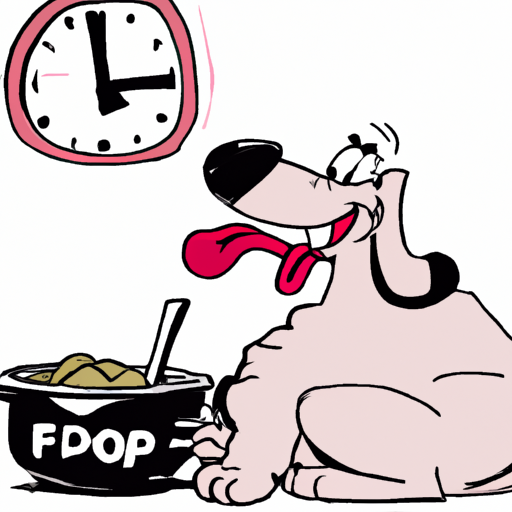Understanding Your Dog’s Digestive System
Just like you, your furry friend’s body operates like a well-oiled machine. With each bite of food, a complex process begins. This process is essential for transforming those delicious kibbles into the energy your dog needs to run, play, and give you endless amounts of love.
The dog’s digestive system is quite similar to a human’s, functioning to absorb nutrients and discard waste. Yet, there are differences in the timing of digestion between dogs and their human counterparts.
The Digestive Process in Dogs: A Step by Step Guide
-
Mouth and Esophagus: Your dog starts the digestion process the moment they take their first bite. Chewing breaks the food into smaller pieces and saliva starts breaking down carbohydrates. The food then travels down the esophagus into the stomach through peristalsis, a wave-like muscle contraction.
-
Stomach: The food lands in the stomach where gastric juices, including hydrochloric acid and digestive enzymes, further break down the food. This process takes about 4 to 5 hours.
-
Small Intestine: The semi-liquid food, now called chyme, enters the small intestine. Here, it is further broken down with enzymes from the pancreas, and bile from the liver, to absorb proteins, fats, and carbohydrates. This process takes approximately 12 hours.
-
Large Intestine: The remaining unabsorbed food, now in a liquid state, moves into the large intestine where water and electrolytes are absorbed. The remainder is formed into feces and is ready to be expelled.
Generally speaking, it takes about 24 to 48 hours for food to fully pass through a dog’s digestive system.
Factors That Influence Digestion Time
Your dog’s digestion time can be influenced by several factors:
-
Diet: Dogs fed on high-quality, easily digestible food may process their meals quicker than those on a lower-quality diet.
-
Age: Puppies digest food faster than older dogs. As dogs age, their metabolism slows down, extending the digestion process.
-
Health: Certain health problems can interfere with digestion, such as gastrointestinal issues or pancreas disorders.
| Factor | Influence on Digestion Time |
|---|---|
| Diet | Quality of food matters |
| Age | Younger dogs digest faster |
| Health Condition | Certain issues can slow digestion |
How to Support Your Dog’s Digestive Health
As a caregiver, it’s crucial to support your dog’s digestive health. Here’s how:
- Feed them a balanced, high-quality diet.
- Ensure regular exercise.
- Regular vet checkups to catch any potential health issues early.
- Keep them hydrated.
Common FAQs About Dog’s Digestion
Q: Can I speed up my dog’s digestion?
A: While you can’t significantly speed up your dog’s digestion, feeding them high-quality food and ensuring regular exercise can help maintain a healthy digestive process.
Q: Is my dog’s digestion similar to mine?
A: Yes and no. While the basic process is similar, dogs typically digest food faster than humans.
Q: What if my dog is not defecating regularly?
A: Irregular bowel movements can be a sign of digestive issues. It’s best to consult with a vet if you notice any significant changes in your dog’s defecation habits.



